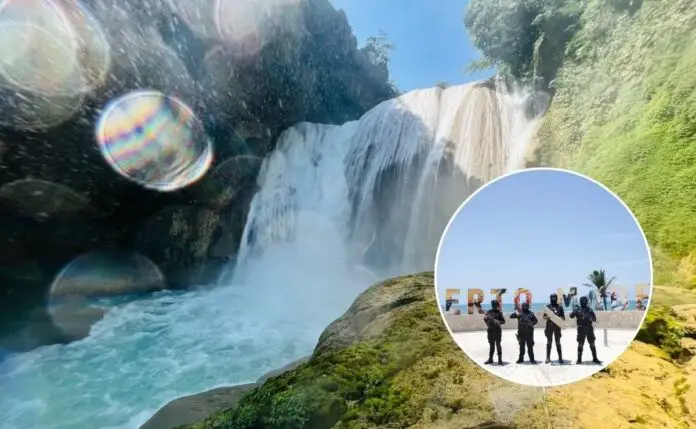In a stark contrast to its breathtaking natural beauty, insecurity has become a major concern for the tourism sector in the southeastern Mexican state of Chiapas. This region, known for its stunning waterfalls, lush jungles, and cultural cities, is struggling to attract visitors amidst ongoing security issues.
According to Daniel Ovando Valencia, president of the Chiapas Association of Tourist Guides, the insecurity plaguing various regions has had a devastating impact on the local tourism industry. Despite concerted efforts at the national and international levels to promote Chiapas as a tourist destination, it’s estimated that the sector will take around three years to recover.
The peak Easter season, which began on April 11, has seen visitor numbers at popular tourist spots in Chiapas fall short of expectations. Local tourist guides have reported significant drops in bookings for accommodation, transportation, and guided tours, highlighting the low demand for services in the region.
San Cristóbal de Las Casas, a major tourist hub known as one of Mexico’s “Magical Towns,” is facing particularly low hotel occupancy rates, averaging around 50-55 percent. Other cities with significant tourist attractions like Tuxtla Gutiérrez, Chiapa de Corzo, Comitán de Domínguez, Palenque, Tapachula, and Tonalá are experiencing similar trends.
Despite the challenges facing tourism in Chiapas, this state boasts a rich cultural and natural heritage, making it an attractive destination for travelers. Visitors can explore its warm and humid lowlands or temperate highlands, discover ancient Mayan ruins like Palenque (a UNESCO World Heritage Site), or experience the unique traditions of its indigenous communities.
From sailing through the majestic Sumidero Canyon to living among the Lacandon communities or exploring its lush jungles, lagoons, and waterfalls, Chiapas offers a wealth of experiences that make it a jewel in southeastern Mexico. However, the current state of insecurity has significantly impacted tourism, making it essential for both local authorities and potential visitors to reassess their priorities.
Source: Debate




